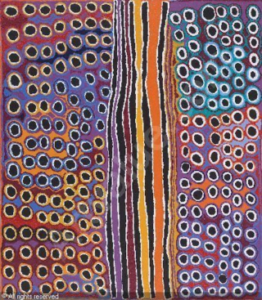
I grew up in a hard working Norwegian farming family in the Midwest and not surprisingly, Midwestern practicality is etched into my cells. When I walk into an art gallery, I often marvel at the amount of time someone spent gluing hundreds or thousands of tiny pieces of glass into a sculpture or creating a fine painting. Thousands of hours in many cases, with no practical benefit other than to be looked at and admired. We can look at and admire a tree or a mountain, why do we need art?
We tend to evaluate the success of artists by whether they can make a living from their art. This is not an easy path and for many artists I know, it’s a struggle. But perhaps there are other reasons why artists labor against the odds to produce art. Perhaps underneath it all, it’s not so much about making pretty things for people to look at and buy. Perhaps what they’re really doing—consciously or not—is engaging in a process that allows them to touch something that’s alive. And perhaps their creative efforts help the rest of us touch this place as well. Maybe… on some subconscious level, the creative process teaches us how to be better humans. Maybe it shows us how to step into something more expansive than ourselves.
The artistic process is not valued in our culture as a deeply profound way of knowing. That is clear when school districts make budget-cutting decisions…and arts programs are the first to go. And although corporations pay lip service to the need for creativity and innovation in order to stay competitive, most of them are too focused on their bottom line to explore a dimension of wisdom that bypasses our cognitive minds.
In my classes and Doorway sessions, I work with metaphor, which is a powerful—and untapped—way of knowing. Artists, consciously or not, have been connecting with the metaphoric realm for eons. Metaphor lies at the heart of the creative process.
The physicist Arthur Zajonc wrote:
I believe that artists are the harbingers of the future mentality required both by science and by the imperatives of living in our precarious times . . . we now truly stand in need, not only as scientists but as a civilization, of the artist’s cognitive capacities.
Sigmund Freud once said that no matter where his research led, a poet had already been there ahead of him. The question is: why? What is it that the poet does…that takes him or her beyond ordinary reasoning capacities?
Capacities such as the artist’s willingness to dwell in perplexity and confusion, welcoming any unlikely connection that shows up, and his or her sensitivity to nuance and qualities of beauty that others miss, provide us with important directional pointers. Unfortunately however, our culture separates off the artistic realm from normal everyday human activity. Whether artists are viewed as weird or genius does not matter, because in either case they are considered different from the rest of us.
Tribal cultures didn’t make artistic products that they set aside and looked at. In fact, they didn’t have the concept of “art” as something separate from life. To them, the process of creating art was a way to commune with the Gods. They made art because they needed to connect with something greater than themselves. I believe we all have that fundamental need. To live we need to grow—we need to reach beyond ourselves into something greater. We are meant to be learners in this world; we are meant to reach beyond.
When we step into a potent metaphor, we step into another dimension, a place I often call the Feeling Dimension. In this metaphoric Dimension, we connect with and feel…the profound creative energies of the Universe.
NOTE: This is an excerpt from my upcoming book, “A Portal to the Creative: Using Metaphor to Unlock Creative Genius and Inspire Breakthroughs”